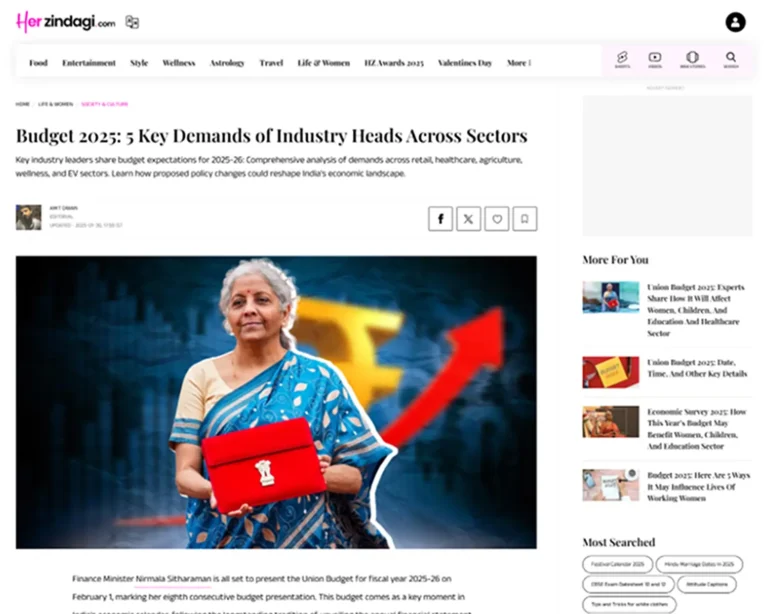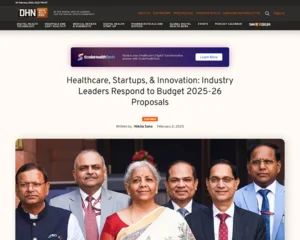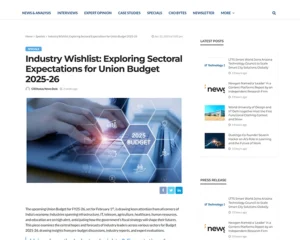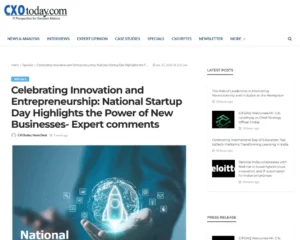Key industry leaders share budget expectations for 2025-26: Comprehensive analysis of demands across retail, healthcare, agriculture, wellness, and EV sectors. Learn how proposed policy changes could reshape India’s economic landscape.

Finance Minister Nirmala Sitharaman is all set to present the Union Budget for fiscal year 2025-26 on February 1, marking her eighth consecutive budget presentation. This budget comes as a key moment in India’s economic calendar, following the longstanding tradition of unveiling the annual financial statement on the first day of February. As the nation anticipates the financial blueprint, experts and industry leaders across various sectors have laid out their key demands, hoping to see crucial reforms and allocations to fuel growth and development.
Budget 2025: Key Demands of Industry Experts

Retail Sector Seeks Streamlined Compliance
Srinivas Kolluru, Business Head of Ghodawat Retail Pvt Ltd, emphasises the need for accelerated implementation of the National Retail Trade Policy. He notes that with the retail market projected to grow at 9% annually until 2030, structural reforms are essential.
“We urge the government to prioritise the retail sectors in the upcoming budget,” Kolluru states. He advocates for a unified licencing system that would consolidate various business registrations, explaining that “introducing a single licencing system consolidating processes like Business PAN, TAN, Trade Licence, and Shops and Establishment Registration will ease regulatory burdens.”
Healthcare Sector Focuses on Elder Care
The healthcare sector’s perspective is represented by Neha Sinha, Dementia Specialist, Co-founder and CEO of Epoch Elder Care, who highlights the pressing need for elder care infrastructure. With India’s elderly population expected to reach 319 million by 2050, Sinha emphasises the importance of comprehensive policy measures.
“The government’s emphasis on long-term, sustainable programmes will be relevant in addressing the unique needs of elders and enhancing their quality of life,” Sinha explains, advocating for specialised care facilities and professional development programmes.
Agricultural Innovation and Sustainability
Two prominent voices from the agriculture sector present distinct perspectives, Janardhan Swahar, Managing Director of Y-Cook India Pvt Ltd, focuses on infrastructure development, “We hope the Finance Minister prioritises investments in infrastructure, such as cold storage and transportation, which are vital for preserving quality and reducing post-harvest losses.”
Harsh Vardhan Bhagchandka, President of IPL BIOLOGICALS, advocates for eco-friendly farming practices, “Our foremost expectation is the exemption of GST on biofertilisers and biopesticides, fostering affordability and accessibility for farmers.”
Health and Wellness Innovation
Mahipal Singh, Founder & CEO of Revaa, brings attention to sustainable menstrual hygiene products. “While basic menstrual products such as sanitary pads are taxed at 0% GST, innovative and reusable alternatives like period panties and shorts remain unrepresented in the tax regime,” Singh points out, calling for expanded tax benefits and industry standardisation.
EV Sector Seeks Financial Support
Nehal Gupta, Founder of Accelerated Money For U, emphasises the importance of making electric vehicles more accessible. “EVs can be more affordable for both individuals and businesses with more support under the PM E-drive scheme,” Gupta suggests, advocating for reduced GST rates and government-backed credit programmes.

Abhi Sinha, Co-Founder, HealSpan, “We urge the Finance Minister to prioritize comprehensive healthcare funding through the Ayushman Bharat scheme to foster a more inclusive approach to healthcare. Additionally, investing in pharmaceutical innovation is critical, especially as a tropical country, where research efforts should focus on combating tropical diseases. In light of recent global health challenges, it is imperative to strengthen our healthcare infrastructure to better withstand future crises and enhance accessibility for all citizens. Furthermore, GST rates must be rationalised, adopting a data-driven approach to reduce the bureaucratic hurdles that have crept into recent decision-making processes.”
“Startups are the driving force of modern economies, contributing significantly to employment and innovation. To accelerate this growth, the government should consider allowing investors to write off startup investments over five years, as practiced in developed countries. This could also extend to employees exercising stock options and investments in SEBI-approved venture funds. Additionally, easing compliance requirements for DIPP-registered startups during their initial years would enable founders to focus on building their businesses rather than navigating complex regulations. Incorporating entrepreneurship into school and undergraduate curriculums can nurture an entrepreneurial spirit in young minds, fostering a culture of innovation from an early age. In sectors like defence and healthcare, where innovation is critical, targeted tax deferments can help startups build capabilities essential for national security and addressing societal challenges like an ageing population. These measures will create a robust startup ecosystem and position India as a global leader in entrepreneurship,” Sushanto Mitra, CEO, Lead Angels.
Vinesh Gupta, General Manager of The Den Hotel, Bengaluru, said, “As we approach the 2025 Union Budget, the hospitality industry is hopeful for reforms that drive growth, such as rationalising GST slabs to boost competitiveness and tourism. Simplifying the tax structure can ease operations and enhance affordability, making India a more attractive destination. Investment in infrastructure is also key to unlocking the potential of emerging destinations.”
The upcoming Union Budget for 2025-26 presents an opportunity to address critical needs across multiple sectors. From improving the retail business environment to supporting elderly care, boosting agricultural exports, and facilitating the transition to electric mobility, industry leaders are looking to the government to take decisive action. By prioritising innovation, sustainability, and inclusivity, the budget can help drive growth and competitiveness in a rapidly evolving global market.







